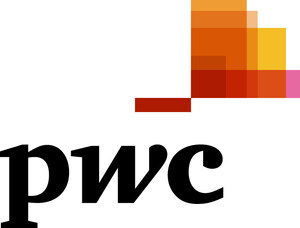NEW YORK, July 11, 2013 /PRNewswire/ -- A new poll of more than 600 business professionals conducted on PwC US' recent webcast, Boosting your bottom line through eco-efficiency, found that 52 percent of respondents rank eco-efficiency as a high or growing priority. The PwC poll results indicate that businesses are putting greater emphasis on efforts to drive financial savings and build a competitive advantage in the market by being more ecologically efficient and reducing their environmental impact. PwC also launched a new report titled, "Less can be more: better for the bottom line and the environment," offering ideas for companies considering eco-efficiency strategies.
(Logo: http://photos.prnewswire.com/prnh/20100917/NY66894LOGO )
"Identifying innovative cost reduction opportunities through a sustainability lens is top of mind for the C-suite. President Obama's recent speech on climate change heightened awareness of corporate action to reduce emissions. At the same time, companies are focusing on the significant financial benefits of improving efficiency, unlocking incentives and rebates, while delivering better environmental results for stakeholders," said Don Reed, Managing Director in PwC's Sustainable Business Solutions practice. "There are a range of financial, environmental, and reputational benefits for organizations taking a more eco-efficient approach, and well-positioned companies are using sustainability initiatives to gain a competitive advantage in their markets," Reed added.
According to PwC's survey, eco-efficiency initiatives meet multiple business objectives and more than half (54 percent) of respondents noted cost cutting as the main objective for their companies, followed by 30 percent who are focused on enhancing corporate reputation, and 12 percent on managing risks.
"Eco-efficiency has traditionally been thought of as energy only, but companies that employ a broader strategy are finding opportunities to reduce costs and impacts for other expenses such as fuel, waste, packaging, and water. By identifying opportunities across the full organization and taking advantage of the financial incentives offered by governments and utilities, companies can quickly realize direct and indirect financial savings," Reed said. "Beyond the cost focus, company leaders are looking at other motivating factors including strengthened reputation, reduced risk and improved customer and employee experience," Reed also noted.
Changes to behaviors, processes, and materials are an important component to implementing eco-efficiency initiatives, but companies can best achieve other goals through investment. More than a third of respondents (38 percent) said funding is one of the biggest barriers to making eco-efficiency a reality in their own organizations. Beyond funding, management support (21 percent) and internal capability (21 percent) emerged as additional obstacles.
To secure funding for eco-efficiency programs, companies should look at additional cash benefits including utility rebates, maintenance savings and government incentive programs, noted PwC. Some utility providers may cover or subsidize capital costs for new equipment that is energy efficient. Likewise, the federal government and many state or local governments provide tax credits, cash grants or loans to spur the adoption of renewable energy, according to PwC.
When it comes to areas where executives see room for improvement in their eco-efficiency strategies, energy usage (52 percent) and waste (27 percent) are the top categories where respondents think their own companies could be doing more. Opportunities to implement eco-efficiency initiatives vary, but common areas that are ripe for returns include lighting, on-site solar, fleets, water, and raw materials, according to PwC.
"Being more efficient and reducing environmental impacts means thinking and acting differently and companies need to learn how to understand and measure benefits of their eco-efficiency initiatives to really maximize the value and returns," concluded Reed.
About PwC's Sustainable Business Solutions
PwC's Sustainable Business Solutions professionals help organizations create competitive advantage through sustainability. We understand our clients' industries and unique business challenges, and we help them meet transformational challenges across the enterprise: building risk resilience into business models and value chains; improving efficiency and returns on sustainability investments; and capitalizing on innovation and growth opportunities.
Visit us at www.pwc.com/us/sustainability to learn more.
About the PwC Network
PwC firms help organizations and individuals create the value they're looking for. We're a network of firms in 158 countries with more than 180,000 people who are committed to delivering quality in assurance, tax and advisory services. Tell us what matters to you and find out more by visiting us at www.pwc.com.
Learn more about PwC by following us online: @PwC_LLP, YouTube, LinkedIn, Facebook and Google +.
© 2013 PricewaterhouseCoopers LLP, a Delaware limited liability partnership. All rights reserved. PwC refers to the US member firm, and may sometimes refer to the PwC network. Each member firm is a separate legal entity. Please see www.pwc.com/structure for further details.
This content is for general information purposes only, and should not be used as a substitute for consultation with professional advisors.
SOURCE PwC
WANT YOUR COMPANY'S NEWS FEATURED ON PRNEWSWIRE.COM?
Newsrooms &
Influencers
Digital Media
Outlets
Journalists
Opted In





Share this article